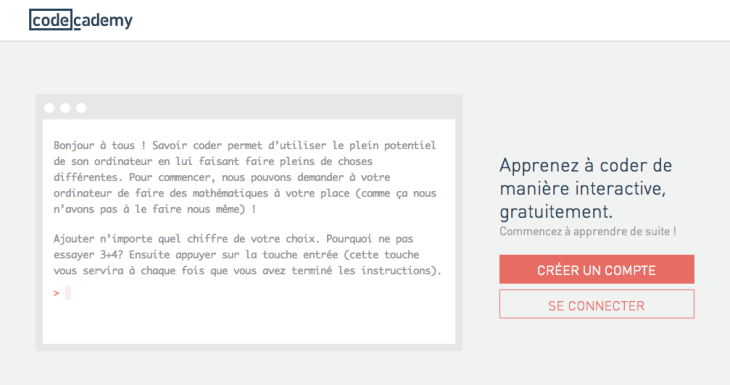Back in 2012, when the online coding-education platform Codecademy announced a $10 million round of funding, the startup said it would invest the money in international growth. Two years later, Codecademy is making some big moves to fulfil that ambition: it’s opening its first international office, in London, and it is announcing partnerships in five markets — the UK, France, Brazil, Estonia and Argentina — agreements with educational and government groups to bring Codecademy to a more localised level.
Partnerships will include work on customised programs, the creation of new, non-English-language content in languages like French and Spanish, and wider efforts to translate existing tutorials on the site.
Some 100,000 courses have been created on Codecademy using its course creator, CEO and co-founder Zach Sims tells me, and with 70% of existing users coming from outside the U.S., there is already some non-English content in those ranks. “But this is the first institutional effort at internationalization,” he says.
That will include, in France, working with Libraries Without Borders (Bibliotheques sans Frontieres) to translate Codecademy into French — an effort that would have an impact not just in that country but many developing markets where French is the main language spoken.
In Brazil, Codecademy has been working with the Lemann Foundation, an education foundation in Brazil, to translate content into Portuguese. The startup says that there will be some educational pilots using the content launching soon.
In Argentina, it’s working with the government of Buenos Aires, which has launched an initiative to teach programming in every school in the city. As with the French translations, the Spanish translations being created in Argentina will, of course, give Codecademy a window into a much wider market beyond that single country.
And while Estonia is not exactly in the same league language-wise, it has proven to be a real trailblazer in terms of how public money is being used to promote education in IT. Working with Tiger Leap, Codecademy will be used in coding education in K-12 programs.
All of the above deals are non-commercial, Sims tells me, although Codecademy is clearly gearing up to start monetising its services in the near future.
“We don’t plan to charge for courses now,” Sims told me in an interview. “There is no pressure on us to do so.”
But he notes that while charging for courses, or perhaps for those created, say, for a specific program, may be one area to consider, so might be new areas on the site, such as job listings to offer students ideas of where they may eventually be able to apply their skills.
“We get a lot of requests for job listings,” he says. “We get requests for pretty much all kinds of things.” Those expansions are all the more possible on the site after a recent redesign to transform it from a basic coding platform into a one-stop education shop.
Ramping up internationally and creating more content for Codecademy’s existing users outside of the U.S. is not really a surprise: the startup says that already some 70% of its 24 million users come from outside the U.S., with users coming from 190 countries. That proportion has grown: in 2012, international made up only half of its users.
The New York-based company picked London as its first international office for two reasons. For one, the UK is Codecademy’s largest market outside of the U.S., with some 2 million users.
And secondly, there is a large initiative in place in the UK, mandating programming education in public schools. In a country where many schools currently do not have any kind of computer science courses in place, Sims says that Codecademy is working with government groups to see how it can help meet that challenge. The company is working on programs like Code Club (an after-school program) and Computing at School, covering around 1,000 schools.
Such initiatives are not just restricted to the UK — Codecademy has been looking at ways of working on educational projects for younger users in other countries for a while now — but as Sims describes it, the UK’s is one of the bigger initiatives, and the first of its kind in Europe, and so it could serve as a template for the startup in how it approaches such projects elsewhere in the future.
